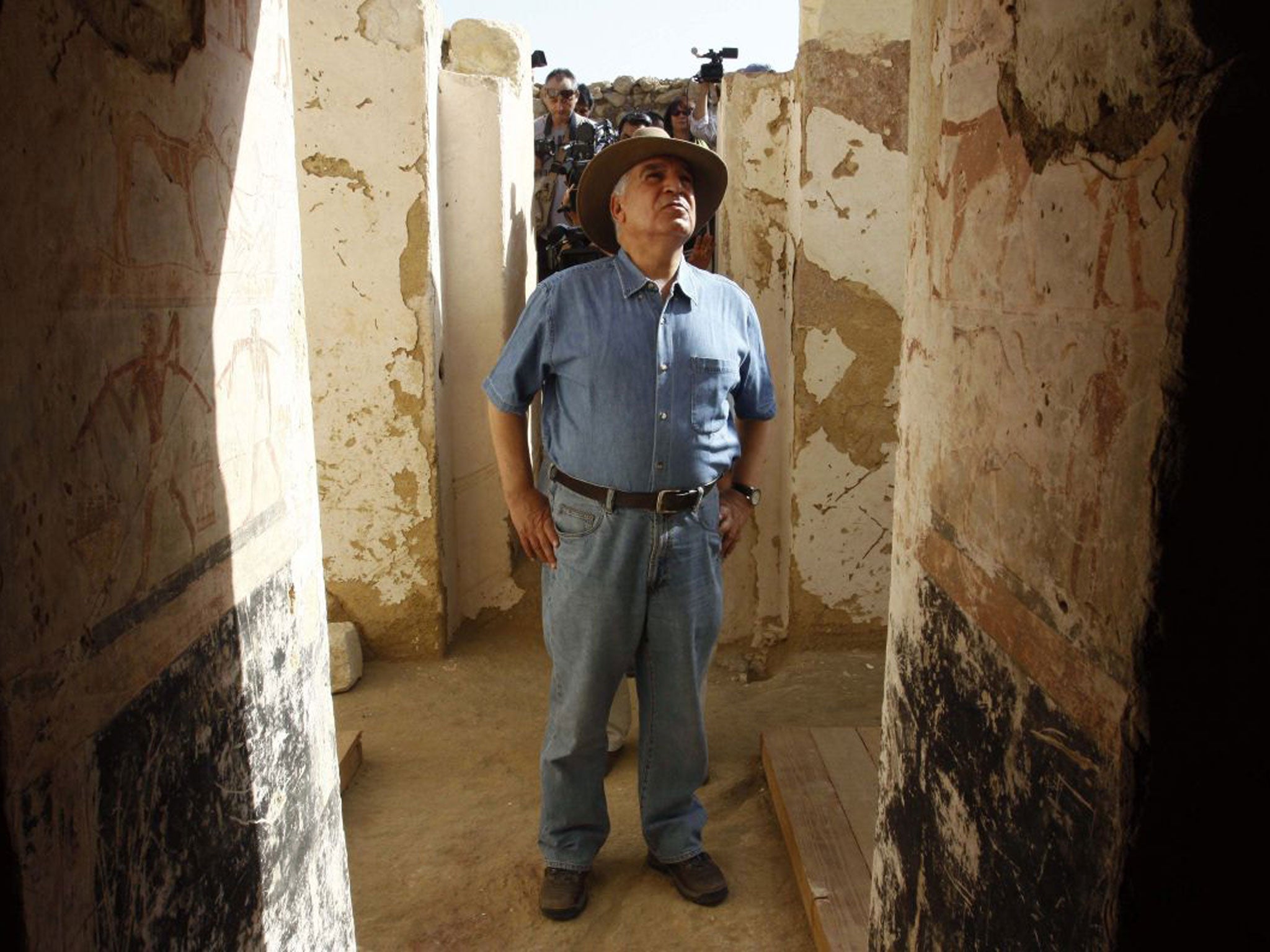US investigates National Geographic over ‘corrupt payments’ to Egypt's keeper of antiquities

National Geographic may be facing an unexpected challenge to its reputation as one of the world’s most respected educational and scientific institutions amid reports that it is under investigation in the United States over its ties to a former Egyptian official who for years held the keys to his country’s many popular antiquities.
At issue is whether the Washington-based organisation, which in recent years has rapidly extended its public reach beyond its well-known glossy magazine to a cable television channel and other enterprises, violated strict US laws on payments to officials of foreign governments in contracts starting in 2001 with Dr Zahi Hawass, who, until the overthrow of President Hosni Mubarak, was the government’s sole gatekeeper to all things ancient Egypt.
For a decade, Dr Hawass seemingly played a critical role in giving National Geographic constant access to the antiquities, including the pyramids and Tutankhamun treasures which because of their popularity with the public became a lynchpin of its expansion. Fees for those services, which according to the Vocativ news web site ranged from $80,000 (£50,000) to $200,000 a year, could be interpreted under US law as illegal bribes.
The Justice Department declined to confirm the investigation. “As a matter of long-standing policy, we generally do not confirm nor deny whether a matter is under investigation,” Peter Carr, a spokesman with the Justice Department Criminal Division, told The Independent.
In a separate statement, a spokesperson for the National Geographic, said: “The National Geographic Society has complied with all applicable laws and acted appropriately with respect to its relationship with Dr Zahi Hawass and the government of Egypt.”
Dr Hawass was likewise indignant. “No one can bribe me,” he told Vocativ. “I’m the most famous Egyptologist.”
Dr Hawass, who lost his perch as protector of his country’s ancient treasures after the first Egyptian uprising and fall of Mubarak, signed successive deals with National Geographic that named him an “explorer-in-residence”. The deal gradually made him a celebrity with armchair archaeology fans in America and wherever National Geographic TV is shown.
“When I became an ‘explorer’, I signed a contract to write books and make lectures,” he insisted. “Based on the law, if you sign a contract to write books and make lectures, you have to get the government’s approval, and I did!” He added: “It was a contract. It was not a bribe. I gave no single favour to National Geographic.”
Any US investigation will be focused less on any possible wrongdoing by him but rather by National Geographic, a charity that first began publishing its magazine with the familiar yellow borders in 1888, with particular reference to the Foreign Corrupt Practices Act which forbids US entities from paying bribes to foreign government to gain an unfair competitive advantage.
Companies targeted by the act recently have included WalMart, accused of paying illegal fees to officials in Mexico to speed the approval of building permits for its superstores.
The institution insists nothing was underhand in its dealings with Dr Hawass. “If there were requests made by governmental entities about our activities, we would co-operate fully and transparently,” a spokesperson told Vocativ.
Subscribe to Independent Premium to bookmark this article
Want to bookmark your favourite articles and stories to read or reference later? Start your Independent Premium subscription today.

Join our commenting forum
Join thought-provoking conversations, follow other Independent readers and see their replies